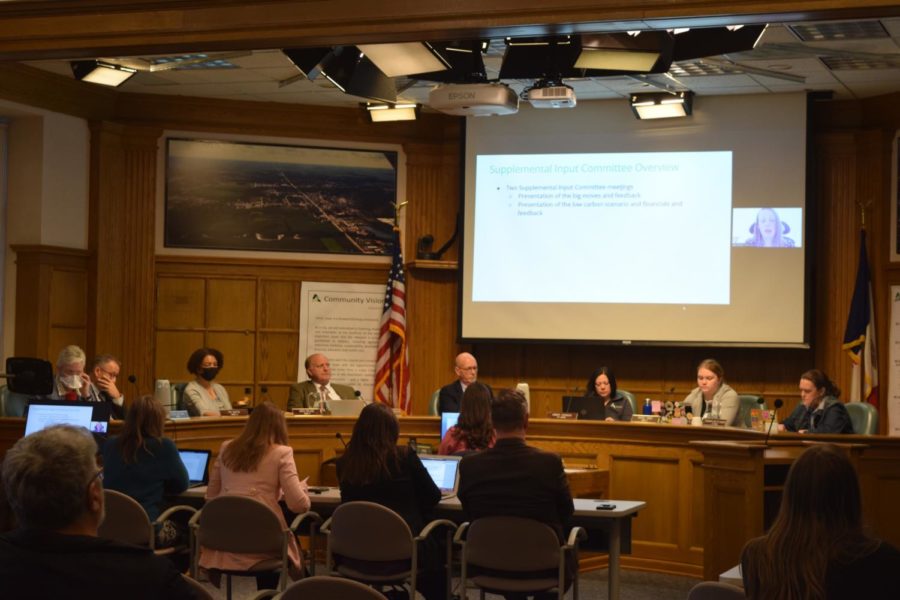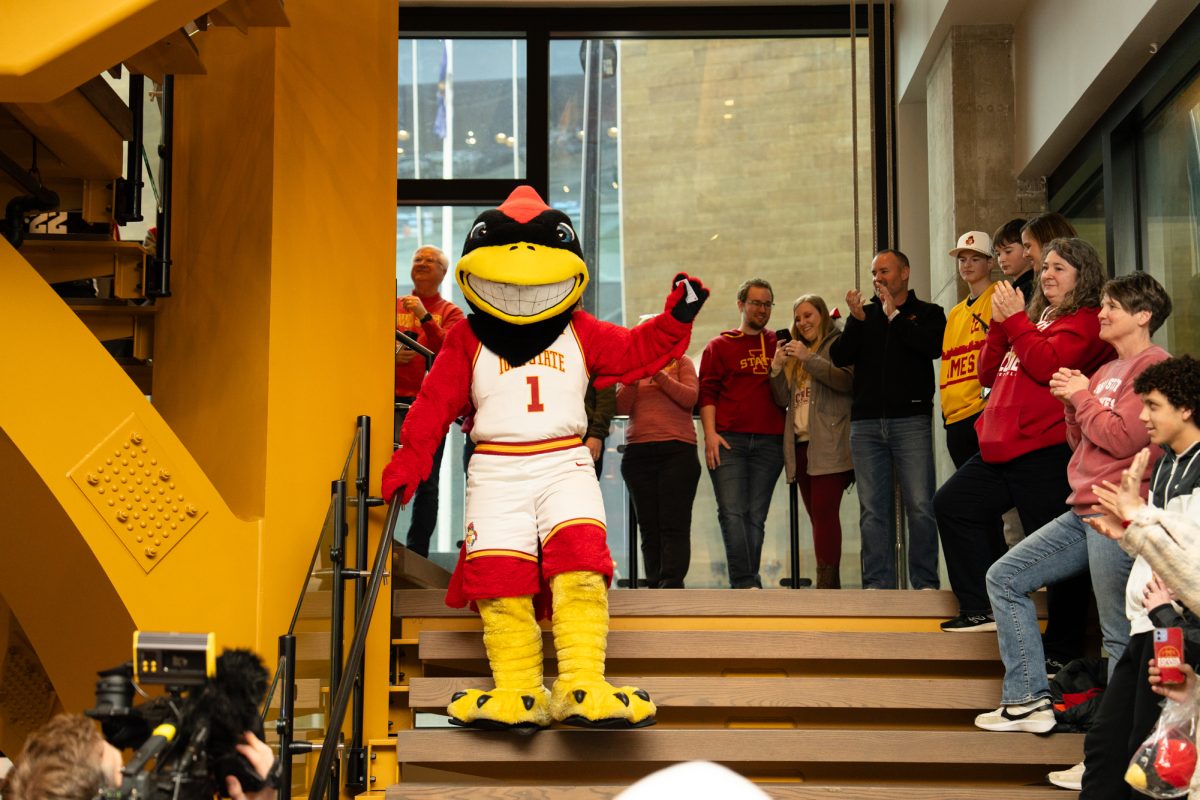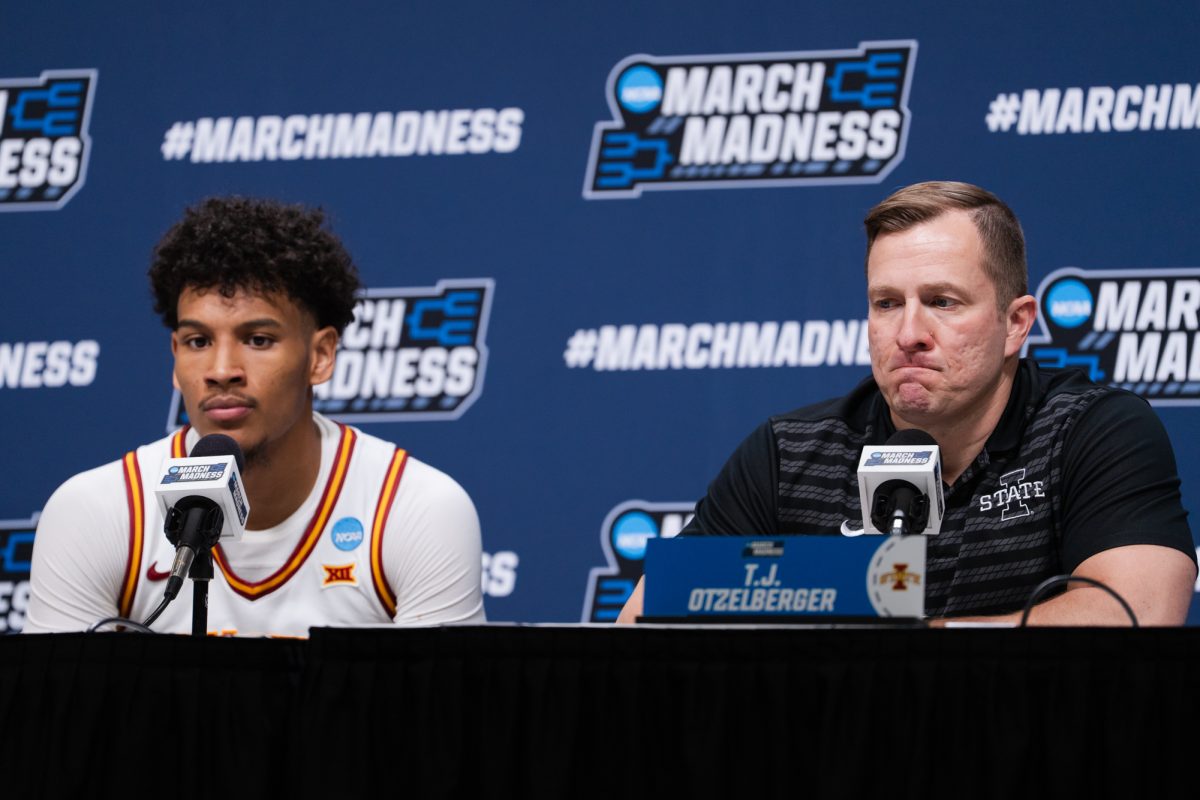Ames City Council proceeds with Climate Action planning
The Ames City Council in the fourth Steering Committee meeting discussed the components of the Ames Climate Action Plan.
April 5, 2022
The Ames City Council delegated the city staff to work with planning consultants to explore how the City of Ames can implement the goals of the Climate Action Plan.
In the fourth Steering Committee meeting Tuesday, the council heard from the Sustainable Solutions Group (SSG) about the planning process to achieve the city’s goal in greenhouse gas reductions. During the presentation, the consultants presented two low-carbon models. The first potential option aimed to cut emissions by 70 percent by 2030 and 94 percent by 2050. The second option would reduce 78 percent of carbon emissions by 2030 and 98 percent by 2050.
These scenarios differed from the council’s goal of cutting emissions by 83 percent in 2030 and hitting net-zero emissions by 2050. When examining emissions produced by the Ames community, transportation carries the heaviest burden, followed by the commercial and residential sectors.
The Ames City Council will determine how to proceed with the Climate Action Plan goals after city staff completes research around implementation. The Sustainable Solutions Group also presented the Six Big Moves to accomplish the greenhouse gas reduction goal. These include:
-
Building retrofits
-
Net-zero new construction
-
Reduce waste emissions
-
Renewable energy generation
-
Reducing vehicle emissions
-
Increasing active transportation and transit use
The consultants then guided the council through 29 proposed action steps to accomplish the Six Big Moves. These actions were based on the council’s targets, local context and best practices. The plan is meant to be adaptable with time. Because the planning is at a strategic and community level, the consultants can only provide recommendations of general actions to launch the project.
The work of city staff is to examine the potential legal constraints municipalities face. For example, the state government limits local government authority from mandating residents to retrofit their home, which means the council will have to explore alternative means to accomplish certain components of the plan.
Once the city staff has gathered information on the feasibility and expenses of the Big Six Moves and the action steps, then the council will determine what steps are tangible to proceed with.
Costs for the Climate Action Plan could amount to $2.4 billion, but the city won’t be the only entity making investments into the implementation. In addition, the city could also generate $1.5 billion in net return and avoided costs as a result of the plan.
Ward 2 Rep. Tim Gartin raised concerns of the potential price tag raising property taxes which would deter people from living in Ames. Mayor John Haila said while these concerns could be a potential outcome, as of now they are premature because council hasn’t taken any action.
“I want to be careful because messaging can be very very important,” Haila said. “I know this council is very committed to climate action planning. I just want to be careful that people don’t get the wrong idea… I am not saying it couldn’t be the case that council chooses things, but it also may not be the case.”
The consultants also pointed out the $2.4 billion in expenses aren’t solely the responsibility of the city. Aspects of the plan will have to be a community effort. To accomplish this community transition, Ward 1 Rep. Gloria Betcher determined education to be a key component in swaying the hearts and minds of Ames’ citizens.
The Sustainable Solutions Group also presented the results from six focus groups, which included participants from various sectors of the community including: business, labor, students, construction, non-profit, transportation and residential groups.
One survey included 626 respondents, and found that the majority of participants were concerned about regulation as opposed to incentivisation. The outreach efforts also reflected a need for the plan to be equitable.
“We can create an aspirational situation that we can pursue, and I think it is well-worth our time to investigate the issue of the how now that we know the what,” Betcher said. “And I don’t think we have enough information to make any decisions without having that how.”







